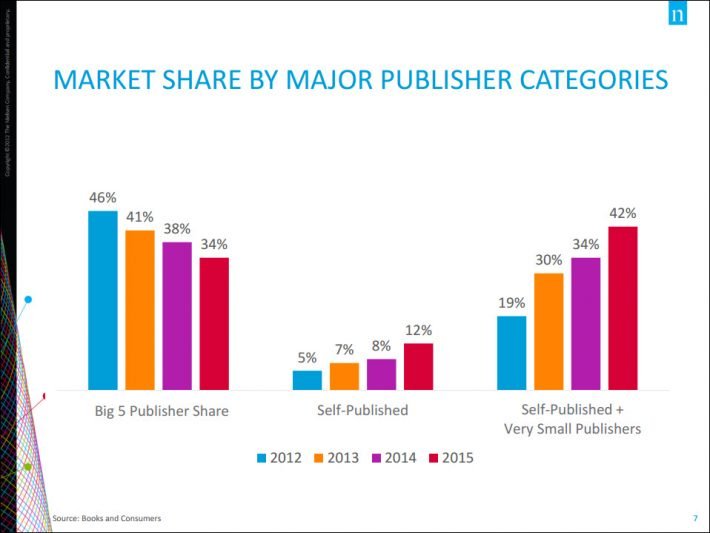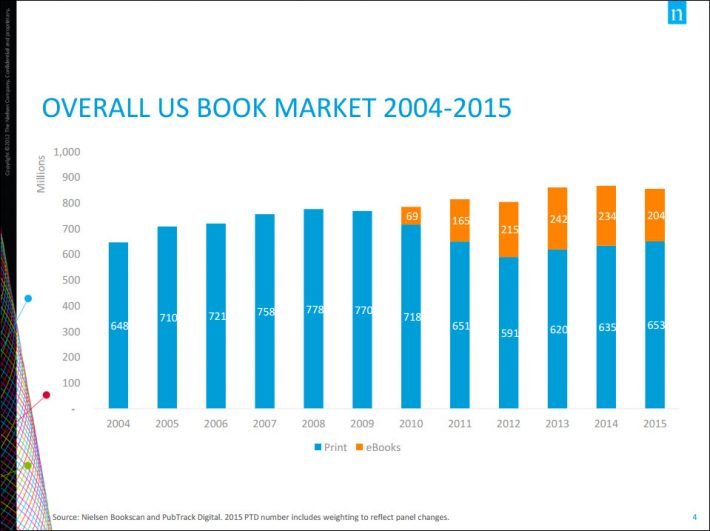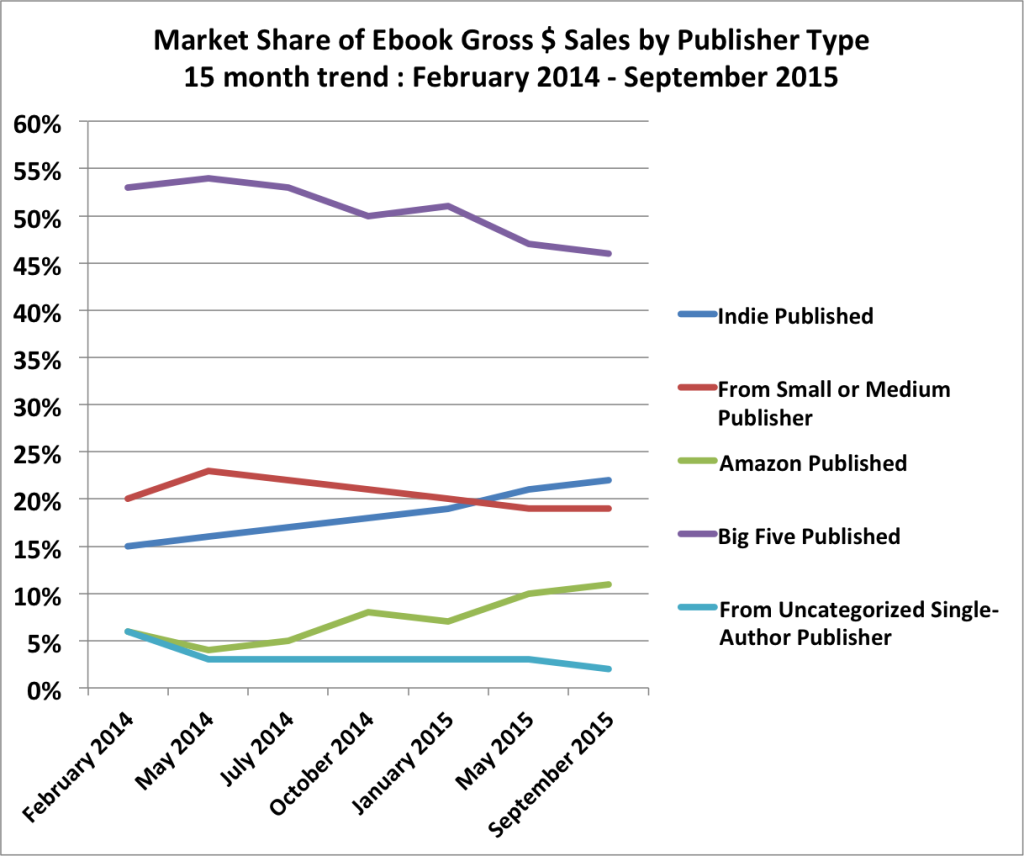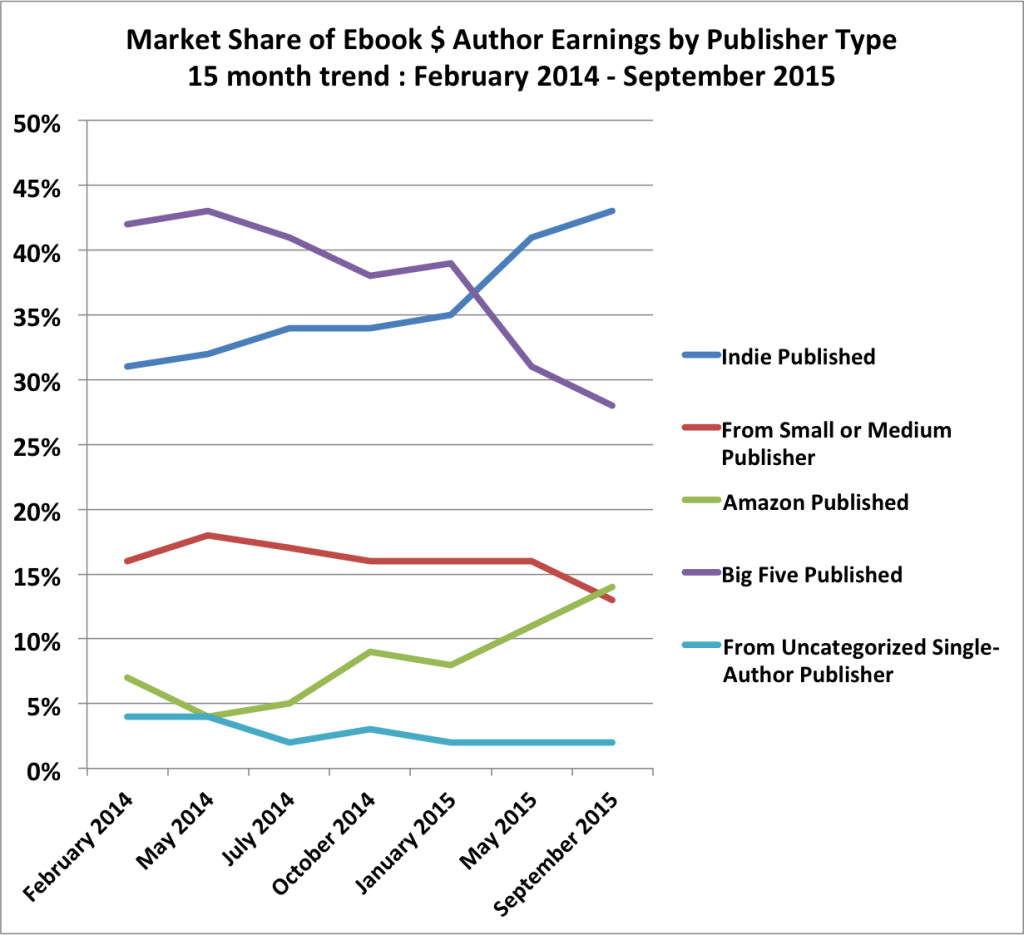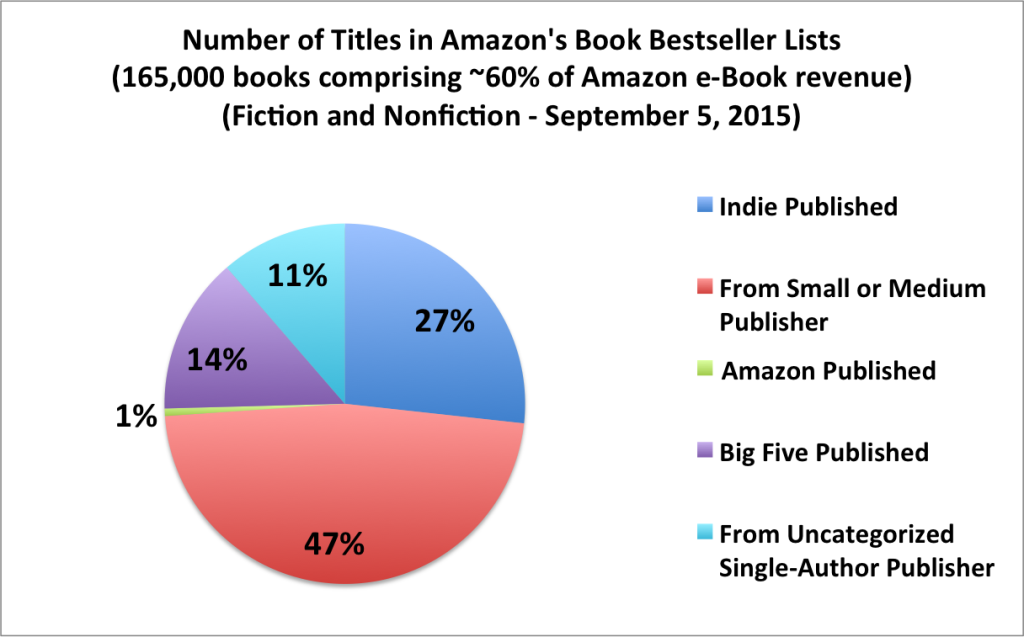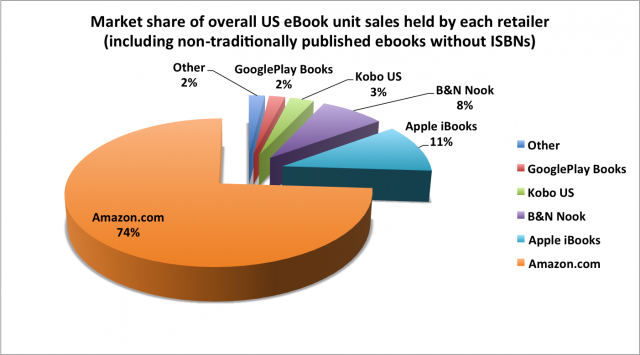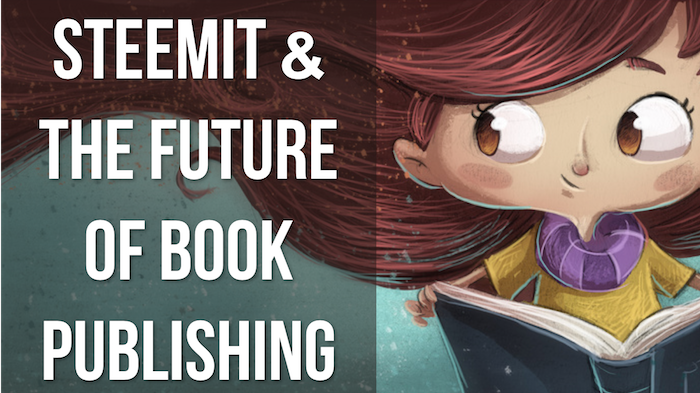
1. The Downfall of Big Publishing
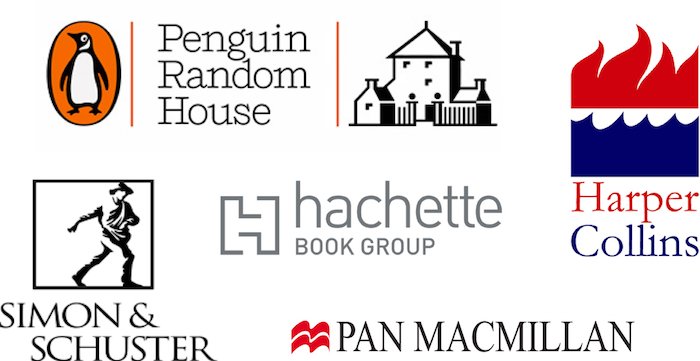
- Self-publishing is slowly eating away at the market share of the Big 5 publishers.
- Big publishing's share has declined yearly since 2012.
- Overall publishing industry sales fell by 2.6% in 2015 when compared to results from 2014. (Excludes Amazon and other online retailers that don't share sales numbers)
- Sales of ebooks published by the Big 5 are declining and don't make up for the fall in print sales.
2. The Rise of Indie Publishing
- Data demonstrates that many readers are abandoning traditionally-published books and buying indie-published books instead.
- Indie publishing is increasingly bringing good exposure and sales revenue to authors.
- Producing, publishing and distributing books is easier than ever.
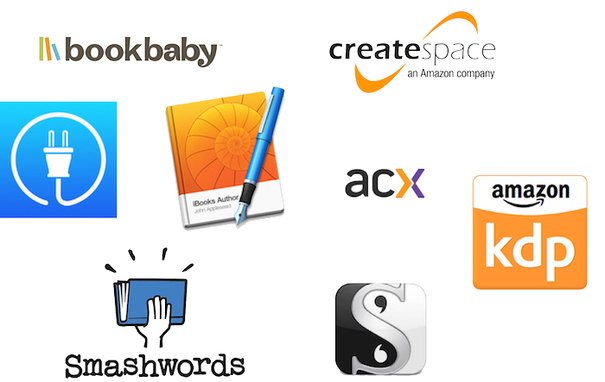
3. The Disintermediator Becomes the Monopoly
74% of all US eBook purchases and 71% of all US consumer dollars spent on eBooks go through Amazon.
Amazon controls 85% of e-books sold by self-published authors.
- In the United States 80% of all indie author earnings come from Amazon.
"digital platforms from companies like Amazon are ultimately dis-intermediating existing industries like book publishing, by allowing content creators to do an end-run around incumbents and sell directly to consumers." - Mathew Ingram, No, e-book sales are not falling, despite what publishers say, Fortune.com
Amazon recently won an important legal battle against Apple and the big publishers.
Authors United worry that Amazon's monopoly is not good for freedom of expression.
"Is it good public policy to allow one corporation to have total power over a nation’s published output?" - Lee Child, Lee Child on Amazon’s real-life bookshops – and why we should be worried, The Guardian
Authors that sign exclusively with the Amazon Kindle store via the KDP Select program reach more readers and earn more money.
Adjustments in incentives by Amazon have significant impact on how literature is read – and how it’s written.
“The e-commerce behemoth is deploying economic levers to shape creative content in the interests of ebook selling.” - Natasha Lomas, TechCrunch
4. Book Publishing Trends
- Big-Data and AI: Data-driven production, publishing, promotion and discoverability.
- The rise of mobile reading and audiobooks.
- User preference for native mobile apps driving broader adoption of ‘native’ phone readers.
- The networked book. A draft (minimum viable product) evolves iteratively with the input of early readers and experts.
- Multi-path digital storytelling.
- Highly interactive, mixed-media ebooks.
- Book crowdfunding.
- Connecting content creators with multi-channel media networks.
- Social reading.
- Platforms focused on the incremental publishing of serialised fiction.
- Royalty payments per number of pages customers read.
- Royalties powered by micro-payments and cryptocurrency.
- Curation as paid quality assurance.
5. Disintermediating the Disintermediator
Innovators and early adopters understand Lean Startup principles. Data-driven validation of the minimum viable product enables the startup to evolve quickly with little waste. Our challenge is to figure out what to validate first. The possibilities and opportunities for a platform like Steemit are endless.
A multi-sided platform as a business model drives network effects, but it also creates tension as we must serve the needs of many types of participants such as content creators, curators, consumers of content, investors, and advertisers.
A clear, well-articulated business strategy that evolves over time ensures everyone is focused, rowing in the same direction, and able to change course quickly as necessary.
The publishing use case is an interesting one. To thrive, Steemit needs quality, high-profile content creators. The focus on the publishing side of the platform could enable Steemit to cross the chasm and reach a mainstream audience. Of course, I'm biased. ;)
I don't know enough about the business strategy of the platform to be able to share a definite opinion. I am confident that authors and other content creators would jump on a publishing platform that integrates the key trends outlined above. Steemit is heading in the right direction, but extra focus on the publishing side comes with trade-offs. Other participants could see their preferred features deprioritised in the short to medium term.
Why Serialized Fiction?
Today, writers are motivated and incentivised to deliver and evolve serialised fiction driven by:
- the success of serialised TV, Netflix et al;
- the move to pay per page read royalty models;
- the success of the wattpad model;
- the widespread adoption of agile principles in the creative process and the need to validate early and often;
- the access to early consumer data and metrics;
- the shorter attention spans of digital consumers.
The future of publishing is serialised, iterative, data-driven, mobile and powered by micro-payments.
Is Steemit the right platform to disrupt the book publishing industry?
I would love to read your opinions. If this is a topic of interest I'm happy to setup a working group. Let me know.
Jamie
p.s. Yes, a lady that writes fantasy and romance fiction may know a thing or two about business strategy and innovation. I like to colour outside the lines, and I hate to stick to one single lane. Ahe'ey will return later today, but I can assure you that Morgan is still VERY upset with Gabriel.

Read Ahe'ey
Listen to Ahe'ey
Connect with Jamie


©Jamie Le Fay, 2016. Reproduction is strictly prohibited.

